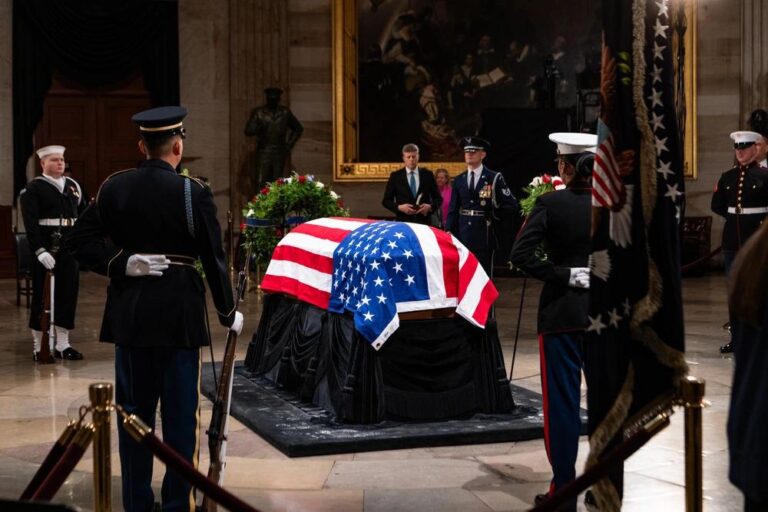Honoring Jimmy Carter: A Tribute to a Life of Service and Global Impact
Jimmy Carter’s Enduring Influence on Peace and Human Rights
Renowned for his steadfast dedication to international diplomacy, Jimmy Carter’s years after the presidency were characterized by vigorous efforts to foster peace and uphold human rights worldwide. Through the establishment of the Carter Center in 1982, he championed conflict resolution, democratic governance, and public health initiatives, setting a high standard for leadership beyond political office. His humanitarian work was internationally recognized when he received the Nobel Peace Prize in 2002, underscoring his lifelong commitment to global welfare.
Highlights of Carter’s lasting contributions include:
- Negotiating the Camp David Accords, a landmark peace treaty between Egypt and Israel
- Promoting transparent election monitoring to strengthen democracies globally
- Leading efforts to eliminate debilitating diseases such as guinea worm
- Advocating for human rights in regions under oppressive regimes
| Year | Significant Milestone | Global Impact |
|---|---|---|
| 1978 | Camp David Accords | Established a foundation for peace in the Middle East |
| 1982 | Founding of the Carter Center | Ongoing initiatives in peacebuilding and health |
| 2002 | Nobel Peace Prize Awarded | Global acknowledgment of humanitarian leadership |
Commemorating a Statesman: The State Funeral in Washington, DC
The solemn state funeral for Jimmy Carter was held at the iconic Washington National Cathedral, drawing an assembly of former presidents, international dignitaries, and citizens united in remembrance. The ceremony blended traditional honors with personal tributes, reflecting Carter’s lifelong dedication to humanitarian causes and public service. President Joe Biden delivered a heartfelt eulogy, while excerpts from Carter’s writings and musical selections inspired by his Southern heritage enriched the proceedings.
Key components of the funeral were thoughtfully designed to honor both tradition and Carter’s personal ethos:
- Processional Path: The funeral procession journeyed from the U.S. Capitol to the cathedral, passing landmarks significant to Carter’s life and presidency.
- Military Honors: Included a 21-gun salute and the solemn playing of “Taps” by a military bugler.
- Public Viewing: The casket lay in state at the Capitol Rotunda for two days, allowing thousands to pay their respects.
| Segment | Time | Venue |
|---|---|---|
| Capitol Rotunda Viewing | 9 AM – 6 PM | Capitol Rotunda |
| Funeral Procession | 10 AM | From Capitol to Cathedral |
| Funeral Service | 11 AM – 1 PM | Washington National Cathedral |
| Final Interment | 2 PM | Andrews Chapel Cemetery |
Global and Public Responses: Honoring a Legacy of Compassion
Leaders worldwide expressed deep admiration and sorrow following the news of Jimmy Carter’s passing and the subsequent state funeral. French President Emmanuel Macron hailed Carter as a “symbol of peace and humanitarian dedication,” while UN Secretary-General AntĂłnio Guterres praised his relentless pursuit of diplomacy and human rights. Tributes spanned continents, highlighting Carter’s role as a mediator who valued dialogue and humility over conflict and pride.
- Barack Obama: “Jimmy Carter’s bravery and empathy reshaped our nation and inspired the globe.”
- Angela Merkel: “A leader whose unwavering commitment to justice set a global standard.”
- King Abdullah II of Jordan: “His peace efforts brought hope to regions long overshadowed by conflict.”
Across the United States, communities held vigils and memorials, reflecting the profound connection many felt with the 39th president. In Washington, DC, prominent monuments were bathed in a gentle amber glow, symbolizing Carter’s warmth and lifelong dedication to service. The Carter Center also published a detailed timeline celebrating his achievements and the worldwide movements he inspired.
| Tribute Type | Description |
|---|---|
| Official Condolences | Messages from over 50 global heads of state |
| Memorial Services | Held in more than 100 cities across the U.S. |
| Social Media Homages | Over 10 million global mentions and tributes |
Lessons from Carter’s Leadership: Guiding Principles for Future Generations
Jimmy Carter’s life work exemplifies a profound dedication to human dignity, diplomatic engagement, and humanitarian service. Although his presidency faced political hurdles, his vision laid the foundation for meaningful advancements in international peace and domestic welfare. His post-presidential initiatives, especially through the Carter Center, demonstrated a relentless pursuit of conflict resolution, disease eradication, and electoral integrity worldwide. His legacy offers invaluable guidance for emerging leaders striving to harmonize governance with ethical responsibility.
- Prioritize diplomacy: Seek peaceful solutions rather than confrontational tactics.
- Defend human rights: Protect the freedoms and dignity of all individuals.
- Plan for sustainability: Implement policies with lasting positive effects.
- Uphold integrity: Let ethical principles guide decisions over political gain.
| Leadership Trait | Carter’s Method | Insight for Future Leaders |
|---|---|---|
| Vision | Advocated peace through negotiation | Aim for enduring and sustainable progress |
| Resilience | Handled political challenges with dignity | Persist beyond setbacks and failures |
| Compassion | Promoted humanitarian causes globally | Lead with empathy and understanding |
Conclusion: Celebrating a Legacy That Transcends Time
As the nation bids a heartfelt farewell to Jimmy Carter, the state funeral in Washington, DC, stands as a powerful tribute to a life devoted to public service and humanitarianism. The dignified ceremonies reflect the profound and lasting influence of the 39th president, whose unwavering commitment to peace, diplomacy, and social justice continues to resonate. In honoring his memory, leaders and citizens alike are reminded of the enduring importance of principled leadership and moral courage in shaping a better future.







